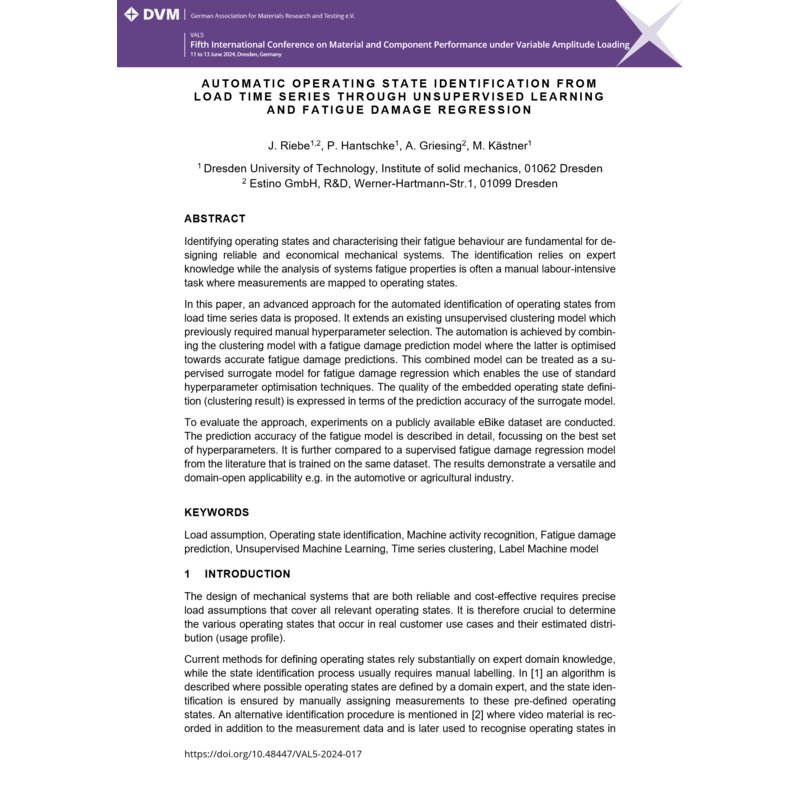- Online only



Accurate load assumptions combine the load characteristics of different operating states and are a key factor in designing mechanical systems that are both reliable and economical. Current concepts for defining operating states rely substantially on expert knowledge, by either defining operating states manually [1] or through a combination of sensor value and a manually generated set of rules [2]. Therefore, identifying operating states and parameterizing their load characteristics is often a time-consuming task, especially when working with large data sets. Recently, an unsupervised machine learning model based on the scattering transform, principal component analysis, and Gaussian mixture model clustering [3] was proposed. This model enables the identification of previously unknown…

Datenschutzbedingungen (bearbeiten im Modul "Kundenvorteile")

Lieferbedingungen (bearbeiten im Modul "Kundenvorteile")

Rücksendebedingungen (bearbeiten im Modul "Kundenvorteile")
Accurate load assumptions combine the load characteristics of different operating states and are a key factor in designing mechanical systems that are both reliable and economical. Current concepts for defining operating states rely substantially on expert knowledge, by either defining operating states manually [1] or through a combination of sensor value and a manually generated set of rules [2]. Therefore, identifying operating states and parameterizing their load characteristics is often a time-consuming task, especially when working with large data sets. Recently, an unsupervised machine learning model based on the scattering transform, principal component analysis, and Gaussian mixture model clustering [3] was proposed. This model enables the identification of previously unknown operating states from load time series data, given a parameterization based on expert knowledge.
In this work, a technique for the automatic parameterization of the aforementioned unsupervised machine learning model is presented, which ultimately enables the completely automated identification of previously unknown operating states from load time series data. This is accomplished by appending a regression-based fatigue damage prediction model. The regression-based model is parameterized with the load assumptions of different operating states. It predicts fatigue damage based on the extrapolation of each operating states’ load assumption according to a usage profile and aggregating them into a final load assumption. The final load assumption is then used to predict fatigue damage. Subsequently, the quality of the prediction can be used as a proxy for the quality of an operating state definition generated by the unsupervised model. The combined model - consisting of unsupervised machine learning model and fatigue damage regression model - is therefore suitable for standard hyperparameter optimization techniques (e.g. grid search).
To evaluate the approach, experiments on a publicly available eBike data set [4] were conducted. The effectiveness of the identified operating states is demonstrated by comparing the derived fatigue damage regression model to a supervised fatigue damage regression model developed on the same data set [5]. The results show potential for a domain-open applicability, e.g. in the automotive or agricultural industry.